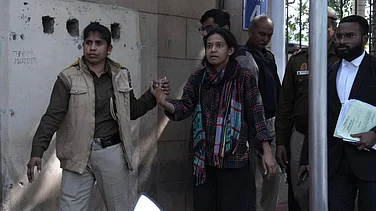
Summary of this article
- Indian government has permitted foreign nationals from Afghanistan, Bangladesh, and Pakistan, belonging to six minority communities, to remain in the country without valid passports or travel documents
- This decision, effective from September 1, 2025, applies to individuals who entered India before December 31, 2024.
- Muslims are notably excluded from this provision, a move that has sparked criticism from various quarters.
In a recent policy update, the Indian government has permitted foreign nationals from Afghanistan, Bangladesh, and Pakistan, belonging to six minority communities, to remain in the country without valid passports or travel documents. This decision, effective from September 1, 2025, applies to individuals who entered India before December 31, 2024.
The Ministry of Home Affairs announced that Hindus, Sikhs, Buddhists, Jains, Parsis, and Christians from these neighboring countries are now exempt from legal action for lacking proper documentation. However, Muslims are notably excluded from this provision, a move that has sparked criticism from various quarters.
While the policy offers temporary relief from deportation, it does not grant citizenship or permanent residency. Affected individuals are still required to register with the Foreigners Regional Registration Office (FRRO) and comply with other immigration regulations.
Human rights organizations and political analysts have expressed concern over the exclusion of Muslims, viewing it as a continuation of the controversial Citizenship Amendment Act (CAA) of 2019, which also provides expedited citizenship to non-Muslim refugees from these countries. Critics argue that such measures undermine India's secular constitution and discriminate against the Muslim community.
The government maintains that the policy aims to provide humanitarian assistance to religious minorities facing persecution in their home countries. However, the exclusion of Muslims continues to fuel debates about religious equality and human rights in India.






















